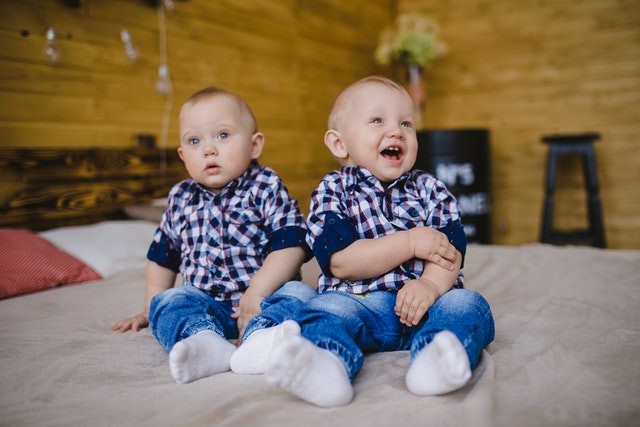In March last year, Cara Winhold discovered she was pregnant although one month after, she discovered she was pregnant again.
A Fox 5 New York report said that according to the woman when the technology told them, there was one more baby, they thought it was a joke initially, and laughed until they found the extremely small "sac up on the screen and heard his heartbeat."
It’s a phenomenon called a double pregnancy — and this Texas family first thought it was a joke when they were told what was going on. https://t.co/RZI1h2mi1T
— FOX 5 NY (@fox5ny) June 22, 2022
Once they left the room to give her husband and her some time to process what took place, the 30-year-old woman continued, that she just remembered: "laying on the table and breaking down in tears." She was happy, afraid, and confused all at the same time. She didn't understand how it occurred.
Furthermore, the woman shared that her husband, Blake sat "very stoically" in their room, not talking when they got the news.
The husband told her he was in complete shock, and all he was thinking about was, how they were going to do that.
ALSO READ: Identical Twins Sharing Nearly the Same Genes More Inclined Towards Natural Spaces

Babies born from superfetation are frequently considered twins as they may be born during the same birth on the same day.
Superfetation
The doctors verified, that the pair of babies were conceived about a week apart because of the measurements of their sacs.
While double pregnancies are rare occurrences, health experts said they are possible through a process known as superfetation.
Healthline describes superfetation as a "second new pregnancy" that occurs during a first pregnancy. Another egg is fertilized by sperm and gets implanted in the womb several days or weeks later than the initial one.
Essentially, babies born from superfetation are frequently considered twins as they may be born during the same birth on the same day.
For one to have a double pregnancy, she would have to either ovulate during pregnancy or have two uteri. Again, both cases are highly unlikely.
Causes and Dangers of Superfetation
Artificial fertility treatments, according to PregnancyCorner, are believed to be accountable for cases in which superfetation is perceived to have taken place, even though exactly how such treatments cause a phenomenon is not clearly understood.
The most essential complication of superfetation though is that the babies will be growing at different phases of pregnancy.
When a baby is ready for birth, the other fetus might not be ready yet. Additionally, the younger one would be in danger of being prematurely born.
Essentially, a premature baby is putting the baby at a higher risk of encountering medical problems like low birth weight, trouble breathing, difficulties with feeding, brain hemorrhage or brain bleeding, movement and coordination problems, and neonatal respiratory syndrome, among others.
On top of this, women who carry more than one baby are at higher risk of certain complications such as high blood pressure and preeclampsia, gestational diabetes, and babies born through cesarian or C-section. The timing of the C-section in particular relies on the difference in the development of the two babies.
Delivering Twins on the Same Day
The Winholds' twins, Colson and Cayden were both prematurely born at 35 weeks and two days, on October 25, only six minutes apart.
The woman also has a three-year-old son, although her road to having one more child was not easy. She suffered three miscarriages, with one turning almost deadly for her.
She shared she needed to undergo two blood transfusions and emergency surgery to save her life. She also had to do it all alone due to COVID-19. She was told she would have died at home had she waited half an hour more.
Related information about unusual twin births is shown on CBS News's YouTube video below:
RELATED ARTICLE: Link Between Disinfectants Use and Pregnancy Found; New Study Reveals How Chemical Products May Result in Childhood Asthma, Eczema
Check out more news and information on Pregnancy and Rare Occurrences in Science Times.














